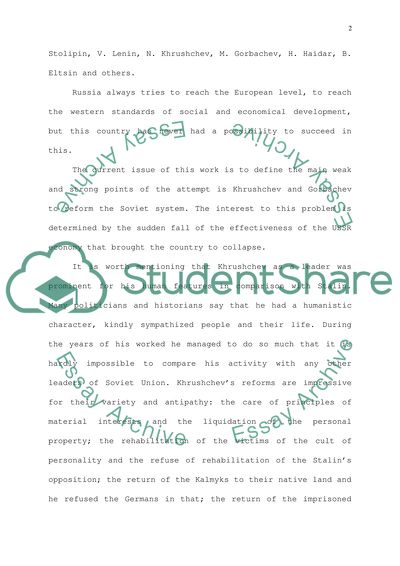Cite this document
(The Strengths and Weaknesses of the Attempts of the Khrushchev and Gor Case Study, n.d.)
The Strengths and Weaknesses of the Attempts of the Khrushchev and Gor Case Study. Retrieved from https://studentshare.org/history/1706822-critically-assess-the-strenghs-and-weaknessess-of-the-attempts-of-the-khrushchev-and-gorbachev-in-there-attempts-to-reform-the-soviet-system
The Strengths and Weaknesses of the Attempts of the Khrushchev and Gor Case Study. Retrieved from https://studentshare.org/history/1706822-critically-assess-the-strenghs-and-weaknessess-of-the-attempts-of-the-khrushchev-and-gorbachev-in-there-attempts-to-reform-the-soviet-system
(The Strengths and Weaknesses of the Attempts of the Khrushchev and Gor Case Study)
The Strengths and Weaknesses of the Attempts of the Khrushchev and Gor Case Study. https://studentshare.org/history/1706822-critically-assess-the-strenghs-and-weaknessess-of-the-attempts-of-the-khrushchev-and-gorbachev-in-there-attempts-to-reform-the-soviet-system.
The Strengths and Weaknesses of the Attempts of the Khrushchev and Gor Case Study. https://studentshare.org/history/1706822-critically-assess-the-strenghs-and-weaknessess-of-the-attempts-of-the-khrushchev-and-gorbachev-in-there-attempts-to-reform-the-soviet-system.
“The Strengths and Weaknesses of the Attempts of the Khrushchev and Gor Case Study”. https://studentshare.org/history/1706822-critically-assess-the-strenghs-and-weaknessess-of-the-attempts-of-the-khrushchev-and-gorbachev-in-there-attempts-to-reform-the-soviet-system.


